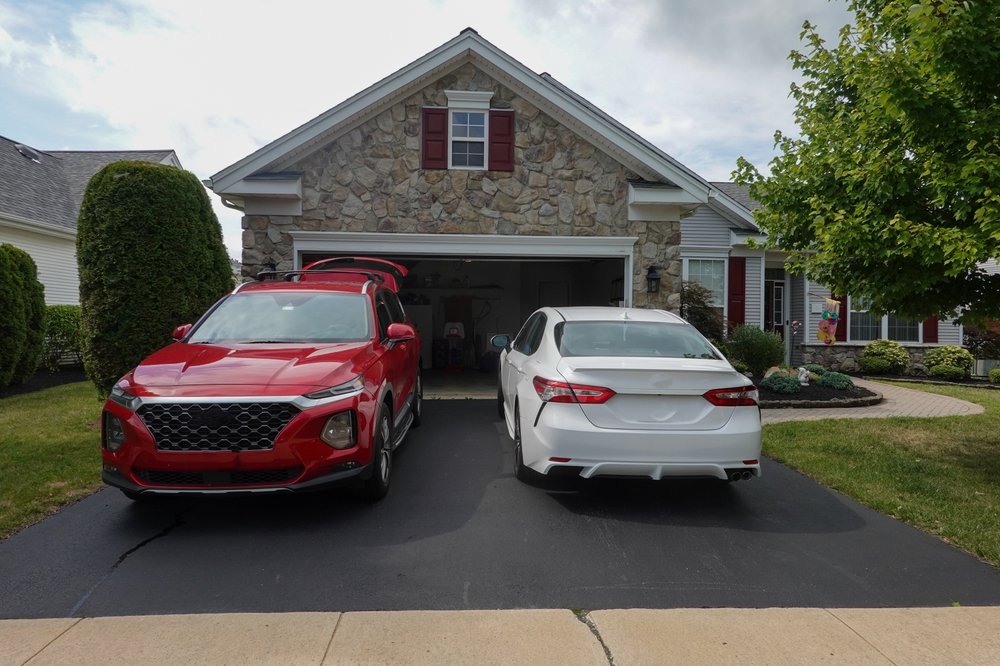
7 THINGS YOU DIDN’T KNOW ABOUT ASPHALT
When you think of asphalt, your mind probably goes straight to roads, driveways, or parking lots—but there’s more to this everyday material than meets the eye. Whether you’re walking on a freshly paved surface or driving along a highway, asphalt is everywhere. Still, few people know the surprising facts behind it.
Here are seven fascinating things you probably didn’t know about asphalt—especially useful if you’re considering asphalt paving in Ambler or Lansdale, PA.
1. What You Call Asphalt Is Actually Blacktop
What most people refer to as “asphalt” is technically blacktop—a mixture made of crushed stone, sand, and a binder known as asphalt cement. That binder is what gives it the familiar black appearance. It’s this mix that forms the durable, flexible surfaces you see on roads and driveways.
✅ Fun fact: Asphalt cement only makes up about 5% of the mix—but it’s what holds everything together!
2. Asphalt Comes From Crude Oil
Asphalt is actually the heaviest byproduct of crude oil. It’s the residue left after lighter fuels like gasoline, diesel, and kerosene are extracted. This thick, sticky substance is what gives the pavement its black color and binding strength.
🛢️ Asphalt literally bubbles up from underground oil deposits in some areas of the world!
3. Asphalt Has Been Used for Centuries
While it feels like a modern invention, asphalt’s use dates back to ancient times. Indigenous communities in North America used natural asphalt to waterproof boats and homes. The material has a long history of being used as both a sealant and adhesive.
🕰️ Even the ancient Babylonians used asphalt for construction and waterproofing!
4. Asphalt Is 100% Recyclable
Asphalt is one of the most recycled materials in the world. In fact, in the United States alone, more than 60 million tons of asphalt are reclaimed each year. Old roads and parking lots are milled and reused in new projects, reducing waste and costs.
♻️ Environmentally friendly and cost-effective—what’s not to love?
5. Rubberized Asphalt Makes Roads Quieter
When mixed with shredded recycled tires, asphalt can become quieter and more heat-resistant. This rubberized asphalt is used in select roadways to reduce noise pollution and improve durability in hot climates.
🔇 Fewer tire sounds and longer-lasting pavement—win-win.
6. Asphalt Mixes Vary by Climate
Did you know that asphalt mixtures are customized based on regional temperatures? The mix used in cold climates is different from what’s used in hot areas to prevent cracking or softening. This is why roads in colder areas may buckle during heatwaves, while those in desert regions hold up better.
🌡️ A pavement in Phoenix isn’t made the same way as one in Pennsylvania!
7. The La Brea Tar Pits Are Actually Asphalt Pits
The famous La Brea Tar Pits in Los Angeles are not filled with tar—they’re filled with natural asphalt seeping from underground oil reserves. These shallow pools trapped ancient animals, now preserved and studied in museums.
🦴 That same sticky material has been used for thousands of years to create roads and even glue!
Need Asphalt Paving in Ambler or Lansdale, PA?
Now that you know more about the science and history behind asphalt, it’s time to invest in quality paving for your own property. At Local Paving and Concrete, we specialize in driveways, parking lots, sidewalks, and more—using durable materials and proven techniques that stand the test of time.
📍 Serving Ambler, Lansdale, and the surrounding areas in Montgomery County.
📞 Call now at 610-415-7283
📩 Email: localpavingandconcrete@gmail.com
🌐 Visit us online: localpavingandconcrete.com